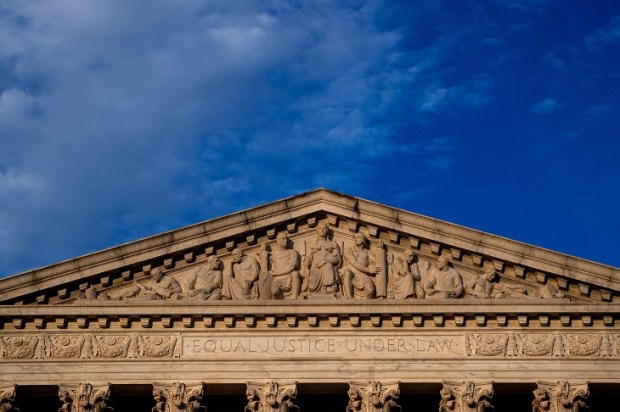The Communications Legislation Amendment (Combating Misinformation and Disinformation) Bill 2023 was recently introduced by Federal Labor in the Australian Parliament. This law proposal foreshadows the imposition of an obligation on digital platforms to police alleged ‘misinformation’ and ‘disinformation’. The definition of ‘misinformation’ found in this law proposal is so broad that it could capture any statement made by Australians in the context of reasonable political debate. Not surprisingly, the content issued by the government can’t be considered misinformation under the law proposal, but criticisms of the government by ordinary citizens can.
In this context, the Misinformation Bill gives the Australian Communications and Media Authority (ACMA) extraordinary powers to gather information from digital platform providers, request the industry develop a code of practice covering measures to combat misinformation and disinformation on digital platforms, as well as allow ACMA to create and enforce an industry standard to combat the spread of misinformation and disinformation on digital platforms. ACMA would gain sweeping powers to require any Australian to appear at a time and place of its choosing to answer questions about misinformation or disinformation. Heavy fines would apply for non-attendance.
These provisions put the communications and lives of free-thinkers, human rights defenders, independent journalists, and ordinary citizens under constant risk. While doing so, the proposed law goes in direct opposition to international human rights experts’ advice that: ‘…general prohibitions on the dissemination of information based on vague and ambiguous ideas, including ‘false news’ or ‘non-objective information’, are incompatible with international standards for restrictions on freedom of expression … and should be abolished.’
History tells us that authoritarian regimes are always inclined to disguise such undermining of freedom of speech. As such, ‘misinformation’ is a term often used to justify any pervasive form of authoritarian governance that restricts any form of public criticism of governmental policy. For example, when Benito Mussolini created his ‘High Commission for the Press’, in 1929, the fascist dictator claimed speech would remain free except for any ‘activity contrary to the national interest’. As noted in The Spectator Australia by John Ruddick, an elected member of the NSW Parliament, Labor’s Misinformation and Disinformation Bill:
‘…is eerily similar to decrees handed down by the Soviet Union in 1918, Italy in 1923, Germany in 1933, Soviet-controlled Eastern Europe in the late 1940s, China in 1955 (with the publication of State Council Instructions on How to Deal with Anti-revolutionary, Obscene, and Preposterous Books, Magazines, and Pictures), North Korea in 1956, North Vietnam in 1956, Cuba 1959, Vietnam in 1975, Iran in 1979, Zimbabwe in 2001 and Venezuela in 2009 … plus every other dictatorship in history.’
Fortunately, the High Court of Australia at least has recognised an implied freedom of political communication as a means of invalidating legislation. This freedom operates as an immunity of the citizen from powers that are not reasonably appropriate and adapted to some other legitimate end. The existence of this implied freedom is derived from the text and structure of the Constitution, particularly its system of representative government, which gives rise to an implication that there must be a freedom to discuss any political matter. In this context, any protection from political criticism is certainly not a legitimate end compatible with democratic participation because political communication is critical to hold government accountable to the people. In Attorney-General (SA) v Corporation of the City of Adelaide (2013) Chief Justice Robert French stated:
‘Freedom of speech is a long-established common law freedom … linked to the proper functioning of representative democracies and on that basis has informed the application of public interest considerations to claimed restraints upon publication of information.’
Of course, the ruling classes have a vested interest in preserving the present orthodoxy by controlling and suppressing any speech that might threaten their hegemonic narrative. For example, in 1621, when the House of Commons in England announced their right to freely speak, King James I tore out the page of the journal which contained such a statement and arbitrarily dissolved the Parliament. The king also imprisoned several MPs who were deemed ‘disloyal’ to him for simply daring to proclaim such a right to free speech, including Sir Edward Coke.
Curiously, the High Court has referred to the notion of popular sovereignty in landmark decisions regarding the implied freedom of political communication, in contradiction to suggestions of parliamentary sovereignty and the idea that politicians can legislate even on the suppression of freedom of speech.
To exercise their sovereign role, Australians must be protected in their important right to freedom of speech against any Act of Parliament. Indeed, no law in this country should prevent anyone from expressing political opinions freely and comfortably, as this would be incompatible with the modern democratic ideal of representative government. As the US founder James Madison argued a few centuries ago, a logical consequence of a commitment to popular sovereignty is that ‘the censorial power is in the people over the government and not in the government over the people’. As such, any legislation which takes away our freedom of political communication should be declared constitutionally invalid.
The present law proposal is about silencing the opinion of anyone who dares to question the desirability of any governmental policy. The horrendous violations of fundamental rights envisaged on the Australian people, especially over the last few years reveals the existence of an invidious trend towards authoritarianism in this country. We are witnessing our system of representative government to gradually become no more than a less open or more disguised form of elective dictatorship. Since it represents another authoritarian attack on constitutional democracy and, more specifically, on our constitutionally implied freedom of political communication, the Communications Legislation Amendment (Combating Misinformation and Disinformation) Bill 2023 is constitutionally invalid and must be strongly resisted by the sovereign people of Australia.
Augusto Zimmermann is Professor and Head of Law at Sheridan Institute of Higher Education. He is also a former commissioner with the Law Reform Commission of Western Australia and the lead author of ‘Foundations of the Australian Legal System: History, Theory and Practice’ (LexisNexis, 2023).
Got something to add? Join the discussion and comment below.
Get 10 issues for just $10
Subscribe to The Spectator Australia today for the next 10 magazine issues, plus full online access, for just $10.


























Comments
Don't miss out
Join the conversation with other Spectator Australia readers. Subscribe to leave a comment.
SUBSCRIBEAlready a subscriber? Log in